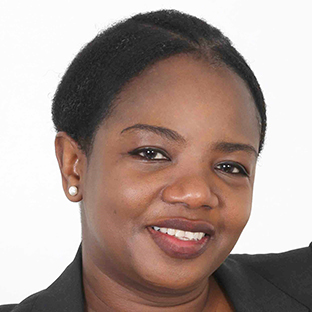If one was to describe this year in one word, the word ‘eventful’ would barely suffice. In a year where storms and floods lashed parts of Britain, social care groaned under the weight of budget cuts, and the steel industry faced a crisis, it was politics that seemed to provide unforgettable tragic and comedic offerings.
While the London Mayoral election was particularly memorable for a racially charged campaign; the EU referendum and the election of Donald Trump as the next president of the United States are the two events that could define 2016 for most socio-cultural observers. These events have thrown to the fore the social divide some of us might have hitherto so politely overlooked - hoping that one day we would wake up to find that we now miraculously live in a world where identity is irrelevant. As we navigate the social tensions that have followed the votes for Brexit and Trump, has there ever been a better time to explore practical ways to facilitate social integration? Or should we leave the challenge of social integration to the politicians?
Practical Steps
If we really wish to build a society that is more integrated and less combustible, there is a need to explore practical ways we could facilitate social integration. One such way would be to ensure that our workplaces are more diverse and inclusive – welcoming talent from different backgrounds. Indeed, cross-country research by the World Bank has shown that employment plays a key role in fostering social cohesion as job loss or lack of access to jobs has been linked to “lower levels of trust and civic engagement” (The World Bank 2013. World Development Report 2013. Chapter Four: Jobs and social cohesion).
As the Social Integration Commission (2014) estimates that long term-unemployment costs the economy approximately £1.5 billion each year and blocked opportunities in the labour market costs us £700 million annually; it is evident that workplaces that fail to be diverse and inclusive, costs us – as a society – significantly (The Social Integration Commission 2014. Social Integration: A wake up call).
My Clore Fellowship research report acknowledges the critical role inclusive workplaces play in facilitating social integration and highlights lessons learnt from leaders who have been identified by peers as having consistently built inclusive workplaces: Julie Bentley - Chief Executive, Girlguiding; Sharon White - Chief Executive, OFCOM; Simon Blake OBE - Chief Executive, NUS; Sue Owen - Permanent Secretary, DCMS and Tunde Ogungbesan - Head of Diversity, Inclusion and Succession, BBC. Their invaluable contributions underpinned the 8 recommendations the report makes for other leaders and managers who wish to actively nurture inclusive workplaces that contribute to making our society more integrated.
Much needed Debate
Inclusive workplaces offer one way to build a more integrated society. However, we all have a responsibility to explore other ways we could address the social tensions that exist in our communities. The Dame Louise Casey independent review into opportunity and integration in the UK was launched this December. While I do recognise that the report will undoubtedly have its supporters and detractors, I believe that in a year where the actions of a Far-Right extremist cost us the life of a much loved MP, this review presents an opportunity for us all. An opportunity to ensure that we embrace conversations that explore practical steps we could take to bridge divides. All voices must be heard.
British society is largely known for politeness and this remains a desirable quality. However, as the American scientist, Edwin Land famously said – ‘Politeness is the poison of collaboration’. If truly we wish to work together to build a more integrated, progressive and economically stable society, we must speak about the unspeakable. Can we possibly avoid such debates if we wish to mitigate future social tensions and bridge existing social divides?
Cordelia Osewa-Ediae FRSA is a Clore Social Fellow, Strategy Consultant and Programme Director who is passionate about social justice. As a Consultant, she has worked with organisations including the Metropolitan Police, University of Greenwich and NSPCC to support communities, nurture talent and deliver impactful initiatives that address social issues.
Related articles
-
RSA Fellowship Councillors: helping shift the dial
Peter Clitheroe FRSA
Peter Clitheroe FRSA, Fellowship Council Deputy Chair, shares his experience of the role ahead of the 2020 Council elections.
-
Equal, Together: Reflections on International Women’s Day 2020
Shauna Aaron
Women need to do more, together, by supporting each other in the workplace.
-
An update on the RSA's Strategic Review
Tim Eyles, Chair of the Board
Tim Eyles, Chair of the Board of Trustees, provides an update on the RSA's Strategic Review.



Be the first to write a comment
Comments
Please login to post a comment or reply
Don't have an account? Click here to register.